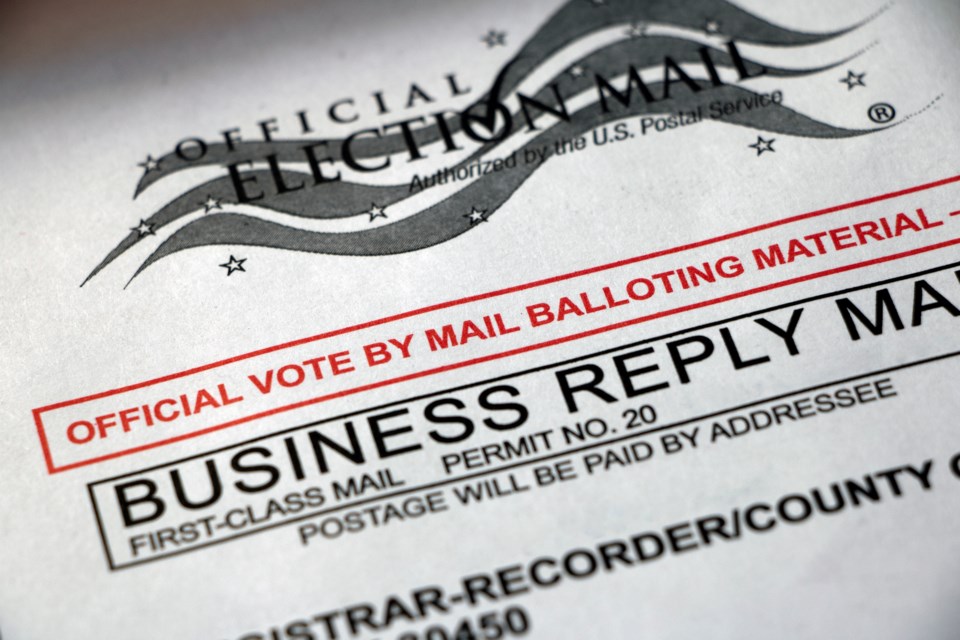DENVER (AP) — Colorado voters have a chance this November to overturn a law that would commit the state's presidential electoral votes to the winner of the national popular vote.
The vote marks the first time a state that has joined what's called the National Popular Vote Interstate Compact will see the move challenged at the ballot box.
Republicans Rose Pugliese, a Mesa County commissioner, and Don Wilson, mayor of Monument, launched a campaign to get the repeal initiative on the ballot after Gov. Jared Polis signed the bill into law in March 2020.
Their group, Coloradans Vote, has collected more than 227,000 voter signatures in support of a repeal.
The National Popular Vote campaign was launched after Democrat Al Gore won the popular vote but lost the 2000 election to Republican George W. Bush after electoral votes were tallied. It has gained momentum after Republican Donald Trump defeated Democrat Hillary Clinton in 2016, even though he won 3 million fewer votes than Clinton nationwide.
Currently, 15 states and Washington D.C., with a total of 196 electoral votes, support the National Popular Vote. The compact would take effect if enough states with a collective 270 electoral votes — the number needed to win the presidency — agree to join. It would change the U.S. voting system to one where the winner of the nationwide popular vote wins the presidency.
Colorado's nine electoral votes now go to the candidate that wins the statewide majority in the popular vote. Forty-seven other states award electoral votes the same way.
Voting "yes" on Proposition 113 would mean remaining in the compact. A "no" vote means repealing the 2019 law.
Pugliesi argues the compact would compel presidential candidates to bypass smaller, rural, often Republican-leaning states to focus on states with large numbers of electoral votes such as California (55), Florida and New York (29) and Illinois (20). It subverts an Electoral College that ensures that smaller states aren't trampled when it comes to choosing a president, she said.
"One of our major concerns is that Colorado does have a lot influence in our presidential elections," Pugliesi said. "We have had candidates come not only to Denver but also to Grand Junction to talk about important national policy issues such as transportation, infrastructure and water, and we don't want to lose that influence."
Democratic state Sen. Mike Foote counters that presidential candidates already ignore so-called "safe states" because "they know that the state is going to go either blue or red no matter what they do."
A functioning popular vote compact, Foote argues, would force campaigns to pay attention to all parts of the country and the issues most voters care about, regardless of whether the state trends red, blue or purple.
"It's an exciting prospect because it would mean that everybody's voice matters and every community and the presidential candidate would have to account for that," he said.
Voters in most states choose presidential electors belonging to political parties. The Electoral College has 538 electors, corresponding to the number of seats held by states in the U.S. Senate and House, plus three votes for the District of Columbia.
John F. Kowal, vice president for programs at the Brennan Center for Justice, a nonpartisan nonprofit, says that over the years, the debate over the compact has become increasingly partisan.
"The fact that two Republican presidents have gotten into office by winning the Electoral College vote without winning the popular vote has polarized the issue," Kowal said. "Now Republicans are much more likely to favor the Electoral College than Democrats."
___
Nieberg is a corps member for the Associated Press/Report for America Statehouse News Initiative. Report for America is a nonprofit national service program that places journalists in local newsrooms to report on undercovered issues.



